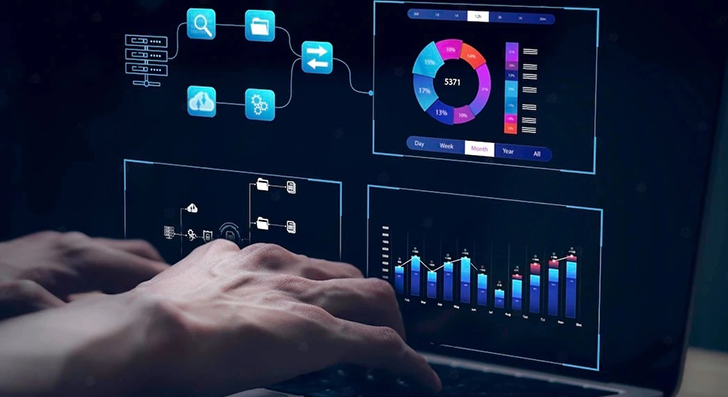Big data has penetrated almost every industry and is gradually becoming one of the driving forces behind organizational success. Government institutions, HCP (Health care Providers), academic institutions, and businesses are all leveraging the power of Big Data to expand paradigms and improve customer experience.
Given the volume, velocity, and variety of information, ‘Big Data’ becomes an ocean of insights—that can help businesses to make strategic decisions and maintain a competitive advantage. Hence, there arises the need for effective and innovative data mining services to uncover valuable information, maximize the value proposition of a company’s digital assets, and address problems that were previously inaccessible.
And, just as every coin has two sides, data mining in big data environments offers numerous advantages and brings certain limitations at the same time. Let’s explore both aspects in detail.
Advantages of Data Mining in Big Data Environments
-
- Reengineer Decisions with Data-based Insights
Data-driven decision-making is vital to create business value and better decisions happen when business, data, and analytics work together. Data mining helps in uncovering concurring patterns, valuable insights, and intelligence from vast amounts of data. By discovering hidden relationships, trends, and correlations, stakeholders can make data-driven decisions, identify new business prospects, and gain a competitive advantage in the industry.
- Know the Ins and Outs of Your Customer
Organizations can gain a deeper understanding of their customers and figure out an ideal consumer persona. By analyzing customer behavior, social media interactions, purchase history, and preferences, businesses get to know the ins and outs of their buyer. Based on this, they can personalize marketing ads and campaigns, optimize product recommendations, and deliver seamless customer experiences, leading to increased customer satisfaction and greater loyalty.
- Potential Fraud Detection and Risk Mitigation
Using big data analytics can significantly help in detecting fraudulent activities, preventing data thefts or security breaches, and mitigating risks while lowering losses incurred. Data mining companies analyze Big Data to help organizations identify anomalies, patterns of fraudulent behavior, and locate false patterns, or potential risks, enabling timely intervention and proactive measures to protect their business interests.
- Enhance Operational Efficiency With Process Optimization
You can leverage data mining to uncover inefficiencies and bottlenecks within organizational processes and workflows. Big Data analytics and insights can help organizations streamline workflows, optimize operations, identify areas for improvement, alter their approach if needed, and enhance resource allocation, leading to improved efficiency and significant cost savings.
- Stay on Top of the Industry Trends
As a Knowledge Discovery process in Databases, data mining enables businesses to forecast future trends and make accurate predictions based on historical data. Web data mining companies leverage predictive analytics models to help organizations anticipate market demands, optimize inventory management, and make proactive decisions to optimize business outcomes.
- Reengineer Decisions with Data-based Insights
Limitations of Data Mining in Big Data Environments
- Privacy and Ethical Considerations
As the internet is booming with forums, blogs, social networks, and eCommerce platforms, concerns about personal privacy are growing significantly. Data mining in big data environments raises privacy concerns and ethical considerations. Analyzing overwhelming volumes of personal or sensitive data requires strict adherence to privacy regulations and ethical guidelines such as GDPR, CCPA, HIPAA, etc. to ensure data protection and maintain trust with customers.
- Data Quality, Diversity, and Complexity
Big data environments are composed of diverse and complex data sources, which pose challenges related to data quality, reliability, and consistency. Data mining outcomes heavily depend on the quality and accuracy of the data used. This implies that inadequate data quality can negatively impact the reliability and validity of the mined results and the outputs might be deviated from the desired ones.
- Scalability and Computational Requirements
Mining through large-scale datasets requires significant computational resources and processing time. As big data environments generate massive amounts of data, conventional data mining and processing systems fail. Organizations need innovative solutions to mine databases in a big data environment or invest in robust infrastructure and efficient algorithms to handle the computational demands of large-scale data mining effectively.
- Data Integration and Data Silos
Data silos are quite obvious in big data environments as they often involve diverse data sources and formats. It becomes difficult to mine when data is scattered and fragmented across different systems and lacks proper integration. Apt data integration and data cleansing processes are crucial for successful and reliable data mining outcomes. Besides, you can rely on data mining services to overcome such challenges.
- Interpretation and Human Expertise
Big data is a mix of structured and unstructured data gathered from multiple sources. These datasets are so voluminous and complex that traditional methods often fail to process them efficiently. Data mining outputs need interpretation and expertise to gauge meaningful insights and actionable recommendations. While Machine Learning algorithms can identify patterns and correlations, human expertise is still essential to visualize and interpret the results accurately and apply domain knowledge effectively.
Wrapping Up
Businesses should consider these benefits and limitations when implementing data mining in big data environments. By understanding these factors, companies can maximize the benefits and reap all the advantages while mitigating the limitations to effectively leverage data mining techniques for improved decision-making and business outcomes.
Read here the original blog: https://www.damcogroup.com/blogs/data-mining-in-the-age-of-big-data-unveiling-the-pros-and-cons






